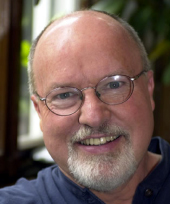It is rare to really absorb the deeper meaning of the Gospel in the first half of life. When we were building (and then protecting) our ‘containers’, we may have settled for the answers our families and churches passed on to us.
But when we move into the second half of life, we can become impatient with institutions, including the church. We know that every institution needs to be concerned about practical things like membership, policies, and principles, but we’re now aware that most of these concerns are ego needs, not soul needs.
Now our intimate circles may be growing smaller. We may bless others who are doing what they feel they must do for a group, but we may no longer be able to join them.
As we distance ourselves, we may feel a certain loneliness. But that loneliness can be accompanied by a new ability to be alone – and even to be happy alone.
We all tend to move towards a needed introversion as we get older. Such introversion is necessary in order to unpack all that life has given us and taken from us.
Now we can begin to engage in contemplation.
Dualistic, ‘black-and-white’ thinking helps us by making comparisons. The dualistic mind compares, competes, conflicts, conspires, condemns, cancels out any contrary evidence (and at times can even crucify).
But dualistic thinking doesn’t help us in most real-life situations. We’re meant to see in wholes, not in parts.
The most important issues in life need ‘both-and thinking’. Split people see and create splits in everything and everybody. Whole people see (and create) wholeness wherever they go.
Where will we find others who will join us in the contemplative life?
Jesus defined church not as an institution but as those places “where two or three are gathered in my name” (Matthew 18:20).
In his parable of the seed, Jesus reminded his disciples that every seed needs receptive soil before it can grow (Matthew 13:4f).
Receptive people help us grow. These people are the ‘good soil’. Two or three people, gathered in Jesus’ name and seeking deeper truth, can create whole new levels of dialogue and friendship.
Could such people support you as you practice the contemplative life? Could they also support you as you move from prayerful contemplation to constructive action?
Some questions from the Companion Journal:
Could ‘both-and’ thinking help you (or your loved ones) when facing suffering and/or death? (p. 159)
Could ‘both-and’ thinking help you deal with issues at work, in your community, or in political debates? (p. 160)
Could ‘both-and’ thinking help you respond to a troubling world with courage and compassion? (p. 160)
Could ‘both-and thinking’ help you move from prayerful contemplation to constructive action? (p. 160)

